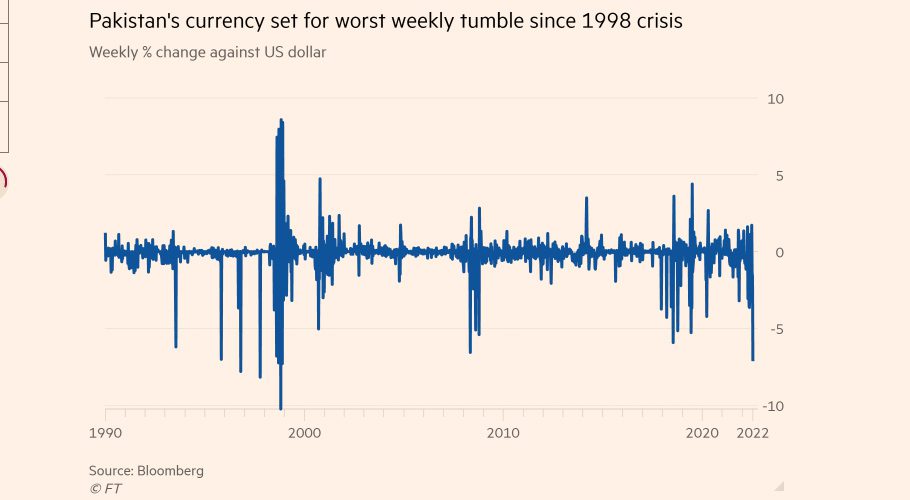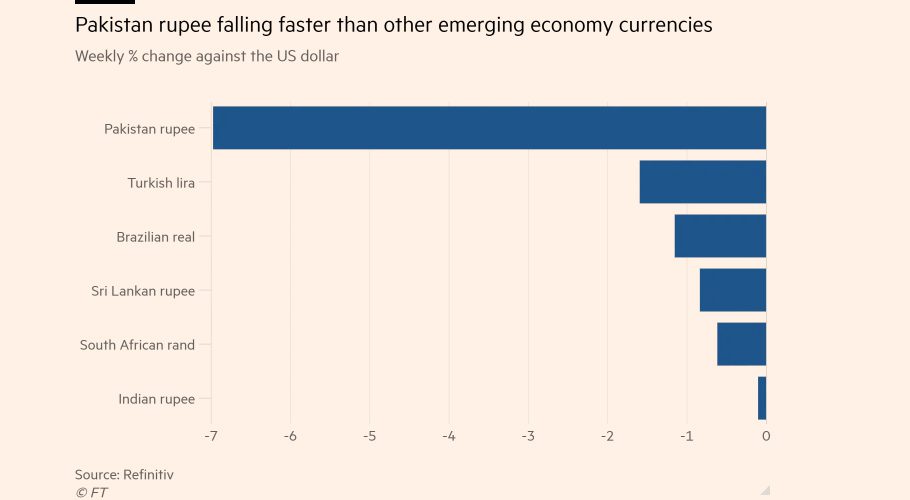Eminent British business and economic current affairs newspaper Financial Times (FT) has painted a bleak picture of Pakistan’s economy in its article published on July 22, 2022. Pakistan’s currency is on track for its worst week in more than two decades, reflecting investors’ worries that the country risks following Sri Lanka to become the next emerging economy to default on foreign repayments, the article said.
The nearly 7 per cent tumble of the Pakistani rupee to Rs226 to the dollar by Thursday marked the latest setback for the currency, which has fallen sharply this year. If there is no recovery on Friday, it would be the rupee’s sharpest weekly fall since November 1998, the article added.

The latest slide reflected mounting concerns that a $1.2bn loan disbursement from the IMF agreed last week might not be enough to avert a balance of payments crisis. Pakistan’s bonds have been among the worst performers in emerging markets this year.
Sri Lanka’s economic collapse and default on its foreign debt in May led to a full-blown political crisis last week, forcing then-president Gotabaya Rajapaksa to flee mass protests into exile.
“We do expect political risk and political volatility to remain quite heightened in the run-up to the next election,” Grace Lim, analyst with Moody’s was quoted as saying in the FT’s article.
It’s worth mentioning, Moody’s downgraded its outlook for Pakistan to negative last month. In a research note last week, the credit agency said the country’s ability to complete its current IMF program “remains highly uncertain”.
However, the British newspaper believes Pakistan’s larger population, strategic location, and nuclear-armed status mean that a financial crisis there would have more serious implications.
“The international fallout from Pakistan’s internal collapse would be much bigger than Sri Lanka,” said Hasan Askari Rizvi, a Pakistani commentator on national and security affairs was quoted as saying in the FT article. “I think there are many outside [powers] who would want to avoid an outright disaster in Pakistan created by an economic collapse.”

According to FT, public anger at soaring prices has already fueled an electoral upset. On Sunday, voters in Punjab province, Pakistan’s most populous region, handed victory to the party of former Prime Minister Imran Khan, who was ousted in April. Khan this week called for early elections, and on Wednesday said Pakistan was teetering toward an “economic collapse”.




































